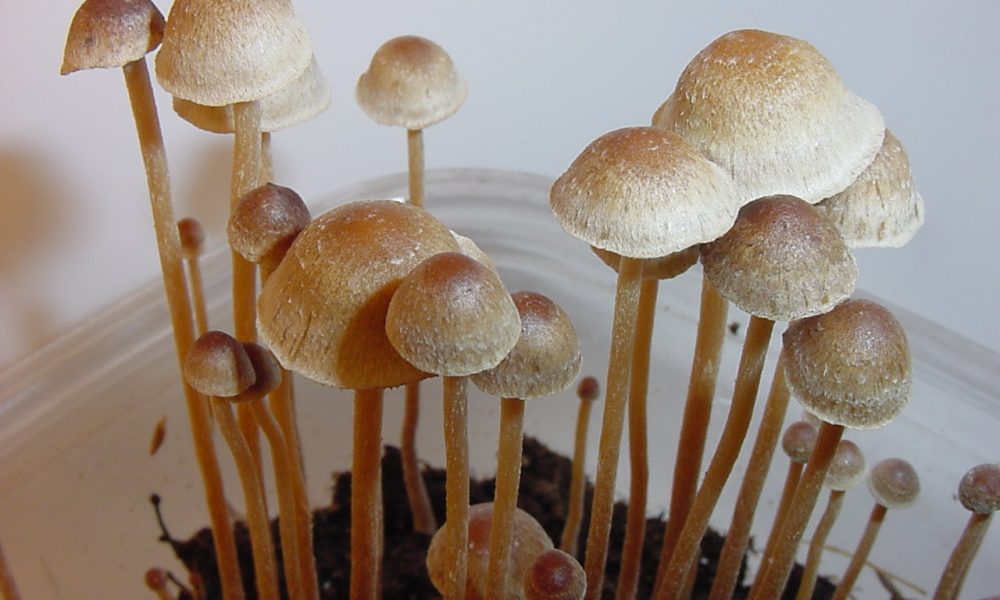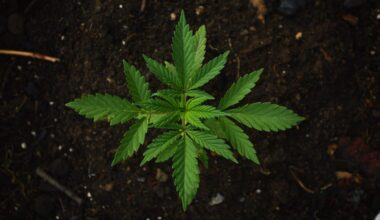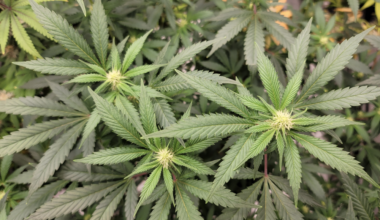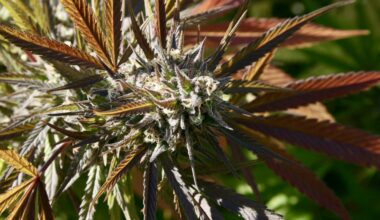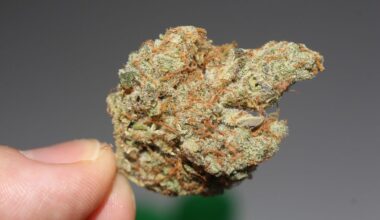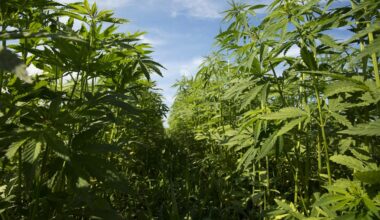California activists on Wednesday announced that they have come up short on collecting enough signatures to qualify a measure to legalize psilocybin mushrooms for the state’s November ballot, though they aren’t giving up on a future election cycle bid.
Decriminalize California was first cleared by the state’s attorney general’s office to begin signature gathering in September, giving them 180 days to collect 623,212 valid signatures from registered voters. On an all-volunteer basis, the group collected about 46 percent of those signatures, but that was pre-validation, meaning a significant portion would likely have been deemed invalid for one reason or another.
“We were doing great there collecting and then in mid-December just about everyone of our core volunteers got COVID and most of the events we were scheduled at either closed, postponed or had an extremely weak turnout,” campaign manager Ryan Munevar said in an e-mail blast to supporters.
Valiant Effort But We Didn’t Make the Cut – https://t.co/009ORSy4iX pic.twitter.com/4WIWWXi3NS
— Decriminalize California (@DecrimCA) March 17, 2022
“This half-open half-closed society we have been in living in has certainly hampered the process of collecting signatures so we have decided to take a few months off to recoup and then focus on raising money for a paid signature drive” for a future effort, he added.
Munevar laid out some next steps for the campaign, saying they will be fundraising in the coming months to determine whether it’s feasible to start collecting signatures for a new reform initiative in either June or October 2023 to make the November 2024 ballot.
Under the proposal, titled the California Psilocybin Initiative, the “personal, medical, therapeutic, religious, spiritual, and dietary use of psilocybin mushrooms” would have been legalized for adults 21 and older. Further, the initiative would have allowed for the cultivation, retail sale, social sharing and on-site consumption of the psychedelic.
While the measure would have legalized psilocybin sales under state law, the attorney general’s title and summary used the word “decriminalize,” a term that some advocates view as more palatable to people who might not necessarily be inclined to support a commercial model for the psychedelic.
“For individuals 21 and over, decriminalizes under state law the cultivation, manufacture, processing, distribution, transportation, possession, storage, consumption, and retail sale of psilocybin mushrooms, the hallucinogenic chemical compounds contained in them, and edible products and extracts derived from psilocybin mushrooms,” the summary said.
Munevar previously told Marijuana Moment that the campaign had a team of 2,800 people who’d volunteered to assist in the signature collection process for this year’s ballot. And those collectors were working in cities across California as recently as this month.
“Keep in mind, between the end of the plague (hopefully), the war between Russia and Ukraine, the beginning of a recession, leading into the next presidential campaign, guarantees inflation is going to keep going up, and the longer we wait the more money it will take,” the newsletter says. “Regardless, if we don’t get the money in time we don’t pull the trigger on a paid campaign.”
The campaign will be hosting a strategy meeting on June 2 to recalibrate.
“Guaranteed the world is going to get crazier before it gets better, and that’s why now more than ever people need access to magic mushrooms and all the other psychedelic substances out there to get through it,” Munevar said. “For those of you working on ending the drug war be it one substance at a time or all of them at once keep fighting the good fight, it’s worth it.”
If the measure had been approved in November 2022, there would have been no limits on personal possession—a policy that has stirred controversy in the state legislature over separate legislation to legalize possession of a wide range of psychedelics that passed the Senate last year but was later placed on hold after clearing two Assembly committees to build more support.
California Sen. Scott Wiener (D), sponsor of that bill, told Marijuana Moment in January that he feels there’s a “50/50” chance that his bill to legalize psychedelics possession will get to the governor’s desk this session.
Decriminalize California attempted to get a similar psilocybin measure on the November 2020 ballot, but they faced similar signature gathering complications due to the coronavirus pandemic and ultimately abandoned that effort.
Meanwhile, psychedelics reform continues to advance through ballot campaigns and in state legislatures across the country.
—
Marijuana Moment is already tracking more than 1,000 cannabis, psychedelics and drug policy bills in state legislatures and Congress this year. Patreon supporters pledging at least $25/month get access to our interactive maps, charts and hearing calendar so they don’t miss any developments.![]()
Learn more about our marijuana bill tracker and become a supporter on Patreon to get access.
—
Colorado activists recently selected one of the four psychedelics reform ballot initiatives that they drafted and filed for the November ballot, choosing to proceed with a measure to legalize psilocybin, create licensed “healing centers” where people can use the psychedelic for therapeutic purposes and provide a pathway for record sealing for prior convictions. A competing campaign filed a different psychedelics legalization last month.
Michigan activists filed a statewide ballot initiative last month that would legalize possessing, cultivating and sharing psychedelics and set up a system for their therapeutic and spiritual use.
A Maryland House of Delegates committee on Tuesday held a hearing on a bill to create a state fund that could be used to provide access to psychedelics like psilocybin, MDMA and ketamine for military veterans suffering from post-traumatic stress disorder (PTSD).
A Connecticut legislative committee on Monday discussed a bill that would set the state up to provide certain patients with access to psychedelic-assisted treatment with substances like MDMA and psilocybin. Former top military officials, advocates and scientists testified in favor of the proposal. The governor of that state, Democratic Ned Lamont, signed a bill last year that includes language requiring the state to carry out a study into the therapeutic potential of psilocybin mushrooms. A workgroup has since been meeting to investigate the issue.
The Washington State legislature last week sent a budget bill to the governor’s desk that includes a proposal to direct $200,000 in funding to support a new workgroup to study the possibility of legalizing psilocybin services in the state, including the idea of using current marijuana regulatory systems to track psychedelic mushrooms.
Last week, the Hawaii Senate approved a bill to set up a state working group to study the therapeutic benefits of psilocybin mushrooms and develop a “long-term” plan to ensure that the psychedelic is accessible for medical use for adults 21 and older.
Also last week, the Oklahoma House of Representatives passed a bill this week to decriminalize low-level possession of psilocybin and promote research into the therapeutic potential of the psychedelic.
A bipartisan coalition of Georgia lawmakers recently filed a resolution that calls for the formation of a House study committee to investigate the therapeutic potential of psychedelics like psilocybin and make recommendations for reforms.
Rhode Island lawmakers introduced a pair of drug decriminalization bills this month—including one focused on psilocybin and buprenorphine that would authorize doctors to prescribe the psychedelic mushroom.
Also this month, a Missouri Republican lawmaker filed a bill that would legalize a wide range of psychedelics for therapeutic use at designated care facilities while further decriminalizing low-level possession in general.
Last month, Utah lawmakers sent a bill to the governor that would create a task force to study and make recommendations on the therapeutic potential of psychedelic drugs and possible regulations for their lawful use.
An Oregon Senate committee also recently advanced a bill to ensure that equity is built into the state’s historic therapeutic psilocybin program that’s actively being implemented following voter approval in 2020.
A bill to decriminalize a wide array of psychedelics in Virginia was taken up by a House of Delegates panel in January, only to be pushed off until 2023. A separate Senate proposal to decriminalize psilocybin alone was later defeated in a key committee.
Washington State lawmakers also introduced legislation in January that would legalize what the bill calls “supported psilocybin experiences” by adults 21 and older.
New Hampshire lawmakers filed measures to decriminalize psilocybin and all drugs.
Legislation was also enacted by the Texas legislature last year requiring the state to study the medical risks and benefits of psilocybin, MDMA and ketamine for military veterans in partnership with Baylor College of Medicine and a military-focused medical center.
A pair of Michigan senators also introduced a bill in September to legalize the possession, cultivation and delivery of an array of plant- and fungi-derived psychedelics like psilocybin and mescaline.
At the congressional level, bipartisan lawmakers sent a letter to the Drug Enforcement Administration (DEA) last month, urging that the agency allow terminally ill patients to use psilocybin as an investigational treatment without the fear of federal prosecution.
Photo courtesy of Wikimedia/Workman.
Medical Disclaimer:
The information provided in these blog posts is intended for general informational and educational purposes only. It is not a substitute for professional medical advice, diagnosis, or treatment. Always seek the advice of your physician or other qualified healthcare provider with any questions you may have regarding a medical condition. The use of any information provided in these blog posts is solely at your own risk. The authors and the website do not recommend or endorse any specific products, treatments, or procedures mentioned. Reliance on any information in these blog posts is solely at your own discretion.
